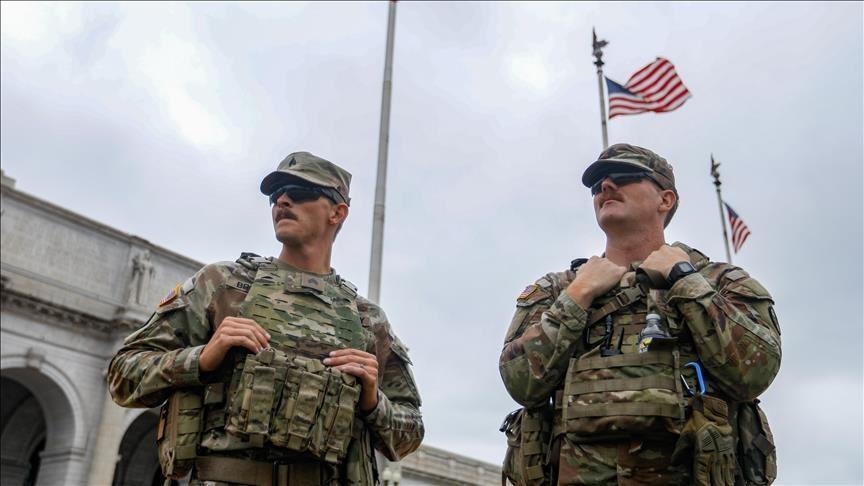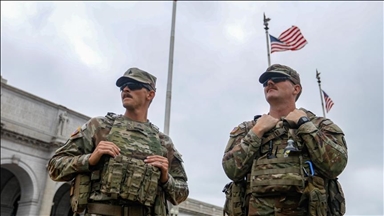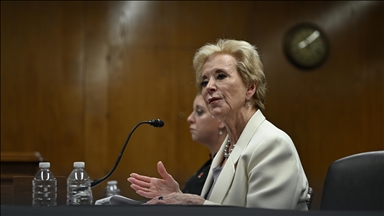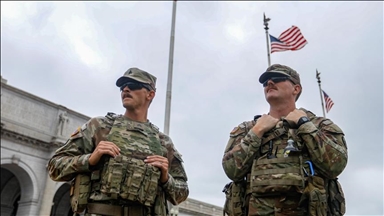Trump administration seeks emergency order to allow deployment of National Guard to Illinois
More than 200 guardsmen from Texas, California have been sent to Chicago; 300 Illinois guardsmen have been federalized

HOUSTON, United States
The Trump administration asked the US Supreme Court on Friday to allow it to deploy National Guard troops in the state of Illinois, according to media reports.
The president has already federalized 300 members of the Illinois National Guard and more than 200 guardsmen from the states of Texas and California have been sent to Chicago, where protests against Immigration and Customs Enforcement (ICE) raids have taken place in recent weeks, with Trump declaring Chicago was a "war zone."
The Trump administration filed an emergency application through the Justice Department asking the nation's highest court to pause a previous order blocking the deployment of the National Guard to Chicago, which is one of several Democratic-led cities where the president has ordered the deployment of hundreds of guardsmen.
"This Court should stay the district court’s October 9 injunction in its entirety," Solicitor General D. John Sauer wrote in the administration’s request. "The injunction improperly impinges on the President’s authority and needlessly endangers federal personnel and property."
Trump has already sent National Guard troops to Los Angeles; Portland, Oregon; and Washington, DC, which have been met with extreme resistance from local leaders, who claim that Trump is overstepping his boundaries by trying to police cities with federal troops over mostly small and peaceful protests against ICE and the Justice Department.
The emergency filing to overturn the lower court's ruling to enable the president to deploy National Guard troops to Illinois is the first time the Supreme Court has been asked to wade into Trump's aggressive use of guardsmen in American cities.
Justice Department lawyers have argued that the Chicago case presented a "disturbing and recurring pattern" in which federal officers seeking to enforce immigration laws have been met with "prolonged, coordinated, violent resistance."
"The district court then issues an opinion granting injunctive relief against the President’s action that downplays or denies the ongoing threat to the lives and safety of federal agents, substitutes the court’s own judgment for the President’s about the need for military augmentation, and gives little or no weight to the United States’ interest in enforcing federal immigration law,” wrote Sauer.
A three-judge panel on the US Court of Appeals for the 7th Circuit ruled Thursday that the Trump administration's decision to deploy the National Guard to Illinois was a "likely violation" of the US Constitution's Tenth Amendment, which reserves certain powers to states and does not allow federal oversight.
The lower court's decision allowed the president to maintain control of the National Guard but ruled that there was "insufficient evidence" of rebellion and that the facts on the ground "do not justify" Trump’s deployment of the National Guard in Chicago.
The temporary restraining order blocking the deployment of guardsmen in Illinois remains in effect through Oct. 23. US District Judge April Perry has scheduled a hearing Oct. 22 to determine whether the temporary order will be extended.
Anadolu Agency website contains only a portion of the news stories offered to subscribers in the AA News Broadcasting System (HAS), and in summarized form. Please contact us for subscription options.







